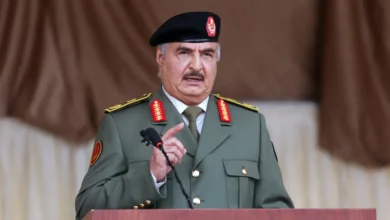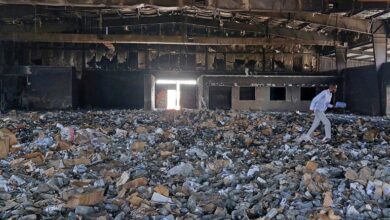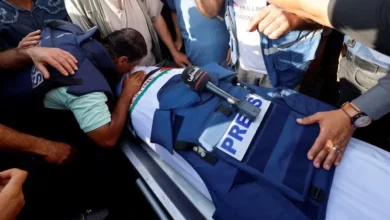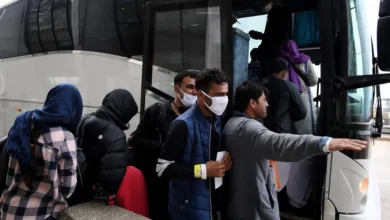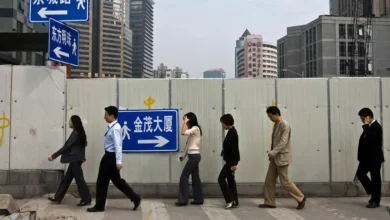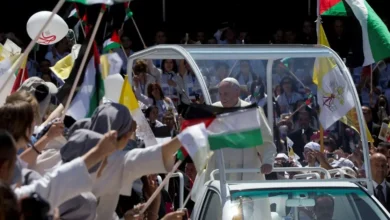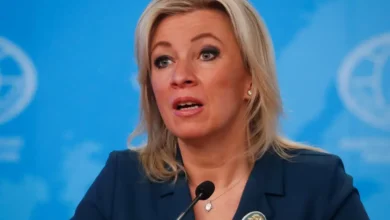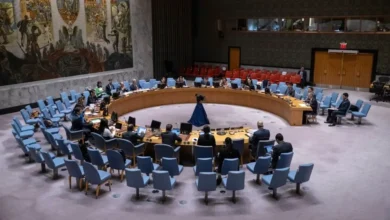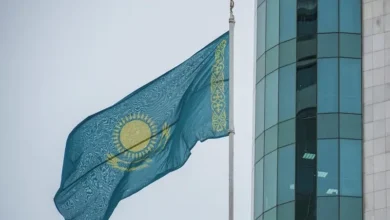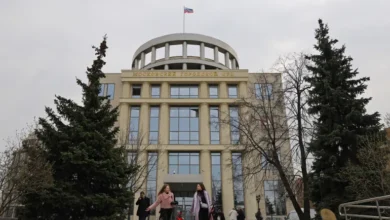Pakistan’s Khan, Sharif both claim election win, despite no clear majority
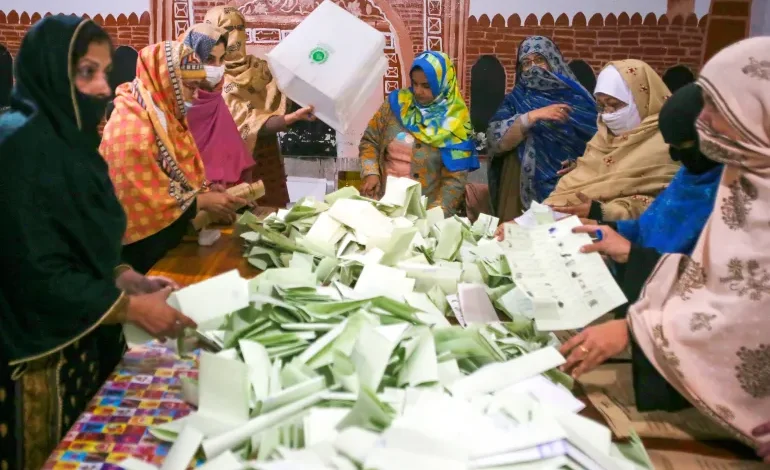
Pakistan faces a period of uncertainty with the election results showing no clear majority and two opposing political leaders, Nawaz Sharif from Pakistan Muslim League (PMLN) and Imran Khan from Pakistan Tehreek-e-Insaaf (PTI), declaring victory.
Full results of Thursday’s elections were still not in for nine of the 265 seats contested late on Saturday.
Independent candidates, mostly linked to jailed leader Khan’s PTI, are well ahead with 102 seats, according to the latest tally posted on the election commission’s website. Meanwhile, Sharif’s PMLN is in second position, having secured 73 seats, followed by Bilawal Bhutto Zardari’s Pakistan People’s Party (PPP) with 54.
“This is probably the most controversial election in Pakistan’s history,” said Al Jazeera’s Kamal Hyder, reporting from Islamabad.
He said the chairman of PTI, Gohar Ali Khan, is confident his party will be in the national parliament as well as in the province of Punjab, where they are claiming to have a majority. They have also swept the polls in Khyber Pakhtunkhwa province.
Meanwhile, PMLN’s Sharif, who also claims to have won the polls, said he would seek to form a coalition government. And the PPP’s Zardari stressed there cannot be a formation of a federal government, as well as in Punjab and Balochistan provinces, without his PPP party.
According to Al Jazeera’s Abid Hussain, two days after the polls have closed, a split mandate has emerged among the big three political powers and there is little clarity about what comes next.
“With such a split, the big question now rests on who will be able to form a government in Pakistan, a country of 241 million people which has suffered a turbulent two years with political instability, an economy on the verge of default and rising internal security challenges,” Hussain said.
Pakistani analyst Zaigham Khan said there are two possible scenarios after the announcement of preliminary results.
“The most likely scenario is a coalition government that includes all political parties – minus the PTI,” Khan told Al Jazeera. This will include the two largest political parties, PPP and PMLN, as well as MQM, Jamaat-e-Islami and others.
“The second scenario, less likely but technically possible, is the PPP joining hands with the PTI and forming a government,” the analyst said. The PTI-affiliated candidates who ran as independents have gathered the largest number of seats.
Protests
With the nation still awaiting the final results, protests erupted across the country for the second consecutive day, with demonstrators claiming that the election result delay is allowing authorities to rig the vote-counting.
NetBlocks reported a nationwide disruption of social media platform X during polling. The PTI has called the interruption “absolutely shameful”.
Election watchdog Free and Fair Election Network said it gave the Election Commission of Pakistan a generally positive assessment of how it conducted polls, and said that delays in announcing results “overshadowed an otherwise orderly election”, raising questions about the legitimacy of the outcome.
“In addition, the caretaker government’s suspension of cellular and internet services on election day – regardless of the security reasons – undermined years of parliamentary efforts to reform the election results management process,” it added in its preliminary report.
Meanwhile, the United States, United Kingdom and European Union have expressed concerns about Pakistan’s electoral process, mentioning allegations of interference – including arrests of party workers – and added that claims of irregularities, interference and fraud should be fully investigated.
In a statement on Saturday, Pakistan’s foreign office said comments by “certain countries and organisations” ignored the “undeniable fact” of Pakistan holding elections peacefully and successfully while dealing with security threats.
‘Stable hands’
Amid frustration and uncertainty among people in Pakistan, the head of the country’s powerful army made his first public statement since the vote.
“The nation needs stable hands and a healing touch to move on from the politics of anarchy and polarisation, which does not suit a progressive country of 250 million people,” said General Syed Asim Munir, according to a statement from the military on Saturday.
“Elections are not a zero-sum competition of winning and losing but an exercise to determine the mandate of the people,” the statement quoted Munir as saying.
“Political leadership and their workers should rise above self-interests and synergise efforts in governing and serving the people, which is perhaps the only way to make democracy functional and purposeful.”
The military is a dominant player in the country’s political affairs and directly ruled it for more than three decades since 1947.
Ayesha Siddiqa, senior fellow at King’s College London, said Pakistan’s army has been hoping for a weak coalition to be formed under the PMLN leadership.
“In a way, these are the results we got,” Siddiqa told Al Jazeera. “But I would also argue that these are not the results they expected. They did the most to ensure that voter turnout was low, but people came out with a passion.”
Siddiqa said the army was likely to back a coalition government bringing together the PMLN and the PPP, but that it was still unsure who would lead it, if Bhutto Zardari, Shehbaz Sharif or Nawaz Sharif.
